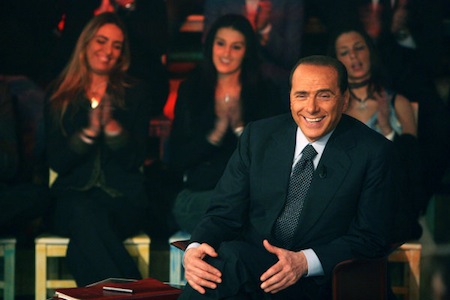As Ukraine’s elections approach this Sunday, WBC heavyweight Vitaliy Klychko is hoping he can deliver a terminal blow to the government of president Viktor Yanukovych.![]()
He’s in many ways the latest beta version of Ukraine’s opposition — after the disenchantment with former president Viktor Yushchenko, whose presidency from 2005 to 2010 degenerated into a splintered majority that failed to enact the promise of 2004’s ‘Orange Revolution,’ and after the imprisonment of former presidential candidate Yulia Tymoshenko, jailed on the politically-motivated charge of negotiating too unfavorable of a contract with Russia on behalf of Ukraine during the 2009 natural gas crisis (even though Russia had essentially turned off the gas to Ukraine and its neighbors), the newest kid on the block is Klychko, the reigning heavyweight world champion.
Klychko heads a new upstart opposition party, the Ukrainian Democratic Alliance for Reform (UDAR, Український демократичний альянс за реформи) that has gained the most momentum throughout the campaign — the latest poll, heading into Sunday’s election, shows UDAR with 17.9%, versus only 23.0% for Yanukovych’s relatively unpopular pro-Russian Party of Regions (Партія регіонів) based in eastern Ukraine.
UDAR also means ‘punch’ in Ukrainian — get it? Vote for the boxer!
Within western and central Ukraine, UDAR will be competing for the more reformist pro-European vote with the center-right ‘All Ukrainian Union — Fatherland’ party (Всеукраїнське об’єднання “Батьківщина, Batkivshchyna), which wins 16.9%, although its leader Yulia Tymoshenko remains imprisoned over what most observes believe are politically-motivated charges. Tymoshenko, who parted ways with her one-time ally Yushchenko, only narrowly lost the 2010 president election to Yanukovych.
Klychko has ruled out any coalition with Yanukovych — he is firmly in favor of liberalization and economic development and in favor of Ukraine’s continued turn toward the EU and toward further integration with NATO as well. As someone who’s made his fortune as a boxer on the world stage, many Ukrainians see him as less likely to succumb to the temptation for corruption in the less-than-pristine environment of Ukrainian politics.
Klychko entered electoral politics with a run for mayor of Kiev in 2008 — he lost that race to Leonid Chernovetskyi, but placed a strong second and won a seat on the Kiev city council. It probably made no difference, however, as Yanukovych essentially pushed a law through Ukraine’s parliament in 2010 to allow the president to appoint the city administrator directly; Yanukovych dismissed Chernovetskyi and named a loyalist in his place.
The other half will be elected directly in districts — a significant change from the last elections in 2007, which were fully determined by proportional representation, and which Yanukovych could win if UDAR and Batkivshchyna split too much of the opposition vote in the single-district constituencies. Although UDAR and Batkivshchyna have agreed on a mutual support pact to withdraw certain candidates in favor of a united opposition candidate, but the two parties are still apparently fielding their own candidates in some of the more competitive districts in Kiev.
So while in many ways Klychko is essentially Reformer 3.0 in the mould of Yushchenko and Tymoshenko, and he seems to have the most momentum just two days before Ukrainians vote, the broader fear is that the pro-European opposition based in the western part of the country will splinter, allowing Yanukovych to consolidate power and pull Ukraine in a less democratic direction, toward Russia and away from Europe. Continue reading Klychko hopes to deliver knockout punch in Ukrainian election

